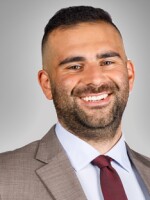UPPER NAZARETH TWP. — Northampton County just added its 250th farm to the list of preserved agriculture sites, a total of 19,000 acres of preserved farmland in the county alone.
The newest preserved farm is the Good Work Farm in Upper Nazareth, which grows fruits, vegetables, herbs and flowers. Its customers are usually on the smaller scale, such as farm stands, restaurants and some grocery stores.
- The Good Work Farm in Upper Nazareth just became the 250th preserved farm in the county
- The farmland preservation program is voluntary, and involves selling development rights to the state
- The owners of the Good Work Farm say it was a necessary and important decision
The farmland preservation program works by farmowners voluntarily signing up to sell their development rights to the state. The state then permanently reserves them for agriculture production, with the goals of stimulating the economy and preserving farming culture.
Pennsylvania has more preserved farmland than any other state in the country.
'It's a necessary decision'
Anton Shannon, who owns the 14-acre farm with Lisa Miskelly, said their participation in the program was partially out of necessity.
"Agriculture in the Lehigh Valley is still thriving, but for generations, we, as a community, residents, have looked at the dollar signs in both housing and warehousing, and there's been a real disinvestment in agriculture — sort of on scale with the whole economy."Anton Shannon, co-owner of Good Work Farm
"Deciding whether you're going to sell your preservation rights to the county is a big decision," Shannon said Monday as officials met at the farm to recognize the milestone. "For us, it's a necessary decision, to be able to have capital to invest in the farm, to be able to get both of us working full-time on the farm."

He said the story of his farm isn't always how that goes.
"Agriculture in the Lehigh Valley is still thriving, but for generations, we, as a community, residents, have looked at the dollar signs in both housing and warehousing, and there's been a real disinvestment in agriculture — sort of on scale with the whole economy."
Shannon said he believes agriculture preservation is a way to collectively reverse that process.
'They become family'
Maria Bentzoni, an administrator for the county's farmland preservation program, has been with the program for 22 years. She said she inevitably ends up forming a sense of kinship with the farmers who enter the program.
"The families that choose to preserve their farms aren't just clients or landowners," she said, tearfully. "They become family. Sitting down at their kitchen tables, and discussing the future of their property, and their families — it creates a bond that lasts as long as the farms are preserved."

She added that the farming families often come to understand the impact of preserving their farms in the context of the future of agriculture nationwide.
Bentzoni said there is quite a demand for the farmland preservation program.
"We are in the process of preserving 26 more [farms]," she said. "November will be the opening round for the following calendar year, so we'll be bringing in the next round of applications then. Interest in this program never waned, landowners are voluntarily enrolling in this program, and as they consider all of their options, it's been my privilege to administer the program for the last 22 years."
Meet Simon

Shannon and Miskelly just got a new puppy named Simon. He lives on the farm and is being socialized — gaining his comfort level around people. Miskelly said Monday's gathering at the farm was a perfect opportunity for him to learn how to behave around people.
Almost every presenter and guest lined up to pet him, and he appeared to enjoy the attention.

During the speeches, he became excited, and at one point, jumped up on the podium, almost as if he thought it was his turn to deliver remarks. The crowd loved it.
Simon is a rescue dog of mixed and many breeds. Miskelly and Shannon say they don't know how big he will get, but probably not much bigger.


